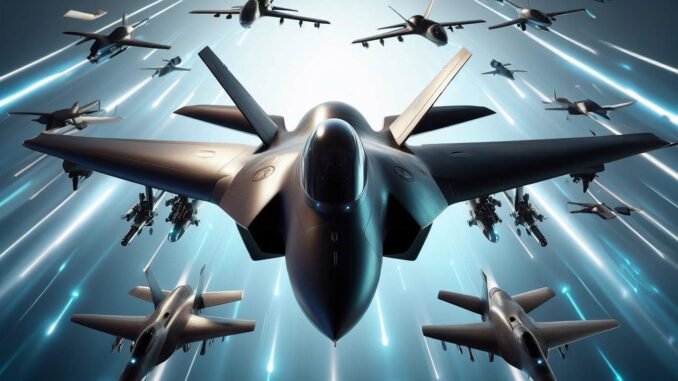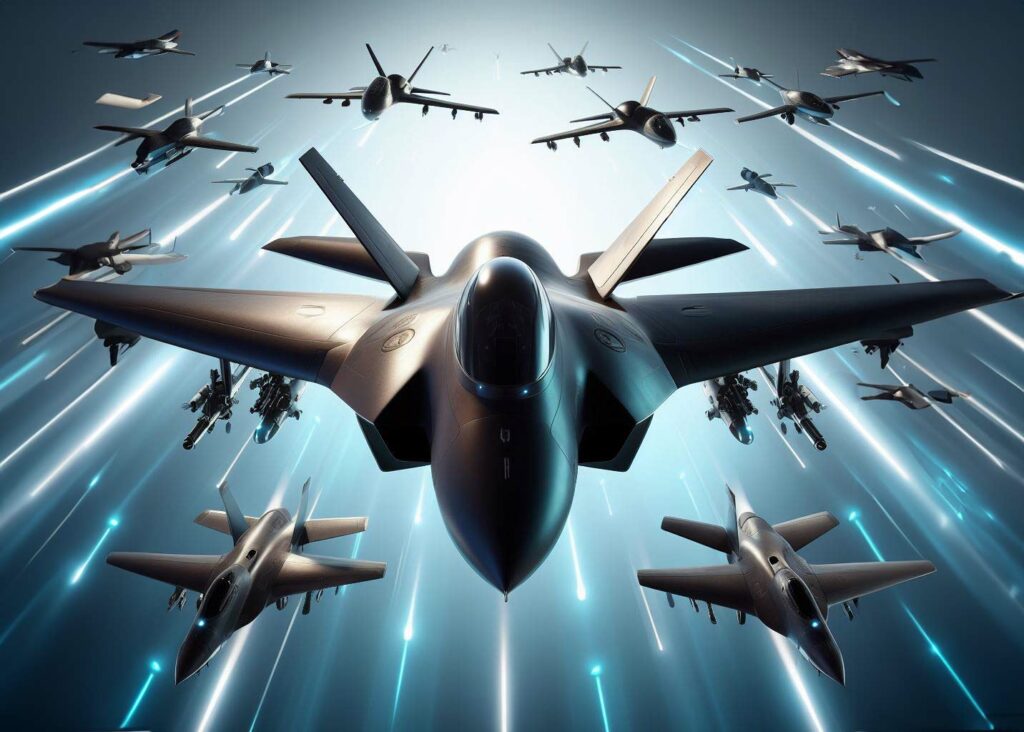
Lt. Gen. Ingo Gerhartz, Chief of the German Air Force, calls for an acceleration in the deployment of military UAVs before the Future Air Combat Program (FCAS) becomes a reality. Faced with delays deemed too long, there is an urgent need to remain competitive and meet current defense challenges.
Lt. Gen. Gerhartz
The head of the German Air Force, Lt. Gen. Ingo Gerhartz, has expressed a pressing desire to speed up the development and deployment of combat and logistics support drones, indicating some concern about meeting deadlines for the FCAS (Future Combat Air System) project, which involves collaboration between Germany, France and Spain. This trinational initiative aims to field a sixth-generation warplane, accompanied by UAVs, for future missions. However, with the current target date being “2040 and beyond”, Gerhartz cites a pressing need for these technologies before the program is fully implemented.
The need for rapid progress
Gerhartz’s position reveals the concern of the German military community about an uncertain target date, which could potentially put Berlin behind its competitors. Despite the advancement of contracts for FCAS drones, Gerhartz suggests that Germany needs to obtain unmanned technologies well before the program is fully finalized.
Drones for a variety of roles
The term “remote carriers” refers to a variety of drones designed for tasks ranging from reconnaissance to electronic jamming and strikes. Smaller models could be used to saturate enemy air defenses, with the aim of overloading their radars and targeting software.
Control from the cockpit
The pilot of the FCAS program’s manned warplane, dubbed the Next Generation Fighter, is expected to control all unmanned elements directly from his cockpit, adapting their use according to the nature of the mission.
Key players in development
Germany, with Airbus Defence and Space as prime contractor, is in charge of developing the remote carriers for the FCAS program. The German and French branches of pan-European missile manufacturer MBDA and the Spanish SATNUS consortium are also involved in the project.
Building on existing missile technology
According to MBDA, the company plans to draw on existing missile technologies, such as the Taurus cruise missile and the Spear 3, Metor and Scalp missiles, to develop its remote carrier offerings.
Towards a dedicated strike drone
At the same time, Gerhartz underlines Germany’s interest in a dedicated strike drone, or UCAV (unmanned combat aerial vehicle). Dassault Aviation, the French leader in FCAS, has been developing such a weapon for years.
Seeking partnerships
Germany is looking for partners to move forward on the UCAV or “loyal wingman” concept, indicating a desire to have this technology at its disposal without waiting for the FCAS to be fully implemented.
Synergies with partner nations
After the interview, the Luftwaffe mentioned the search for “synergies” with partner nations to integrate manned and unmanned strike platforms in “collaborative combat” scenarios.

An unstable history for the FCAS program
The FCAS program has gone through some difficult times, mainly due to mistrust between Airbus and Dassault, which has sometimes influenced bilateral political discourse between Germany and France on the usefulness of bilateral defense programs.
Rumors and clarifications
Rumors reported by The Times of London indicated that German Chancellor Olaf Scholz was considering abandoning the FCAS program in favor of the competing British effort, Tempest. However, a spokeswoman for the German Ministry of Defense denied these allegations, stating that Berlin remains committed to the FCAS program.
Building a demonstrator
Contractors began building a demonstrator in March, which, according to a spokeswoman, puts the project on a “good track”.
The German air force chief’s insistence on accelerating drone development underlines a crucial need for modernization to maintain Germany’s military competitiveness. The balance between rapid innovation and long-term commitments such as the FCAS is a delicate one, requiring an agile strategy that can adapt to technological developments and contemporary strategic requirements. With key international players and rapidly changing technologies, Germany and its partners need to navigate carefully to ensure the security and effectiveness of their future defense.
War Wings Daily is an independant magazine.